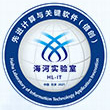发展论坛3 (Development Forum 3)
Finite-Time Control and Consensus 有限时间控制和一致性 Chair: Zhi-Liang Zhao (Shaanxi Normal University, China) Tengfei Liu (Northeastern University, China) |
Panelists: Zhengtao Ding (University of Manchester, UK)
Yuqiang Wu (Qufu Normal University, China)
Shihua Li (Southeast University, China)
Tengfei Liu (Northeastern University, China)
Zhi-Liang Zhao (Shaanxi Normal Uinversity, China)
Abstract: The objective of this development forum is to provide a platform for researchers and practicing engineers to exchange their results and ideas on topics closely related to an important, yet less explored, field of finite/fixed/prescribed-time control of nonlinear and multi-agent systems. It will also provide an opportunity to younger graduate students to identify open problems for their research and interact with active researchers in this field.
Achieving stability by means of feedback for dynamical systems is a fundamentally important issue in control theory and control engineering. This development forum will look at a special type of stability: finite-time stability, that requires the solutions of the system in question to converge to an equilibrium point of interest in finite time T and stay there afterwards. This is a much stronger, and sometimes more practically desirable, property than the conventional notion of asymptotic stability that asks the solutions to converge to the equilibrium point as time t goes to infinity. Other variants of finite-time stability are fixed-time and prescribed-time stability. For fixed-time stability, the terminal time T admits a uniform upper-bound, while, for prescribed-time stability, the terminal time T is prescribed and is independent of initial conditions. In many applications such as the multi-agent rendezvous, ABS braking, missile tactical guidance, ensuring fixed/finite/prescribed-time stability for the concerned dynamical control system is highly desired.
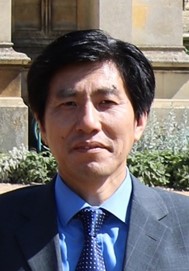
Speaker: Zhengtao Ding, University of Manchester, UK
Title: Finite-Time Mechanisms in Distributed Optimization and Formation Control
Abstract: Recently there have been significant developments in finite-time control and finite-time mechanisms in control and related applications. Finite-time control methods ensure the convergence of controlled variables in finite-time, and hence it is very appealing to various applications. Zhengtao Ding’s research group in Manchester has been involved in the development and application of finite-time control algorithms for consensus control, formation control of robots and distributed optimization for power dispatch and applications. In this presentation, some details of their involvements will be presented, in particular, in the areas of finite-time formation control and application of formation control to power systems.
Zhengtao Ding received B.Eng. degree from Tsinghua University, Beijing, China, and M.Sc. degree in systems and control, and the Ph.D. degree in control systems from the University of Manchester Institute of Science and Technology, Manchester, U.K. After working in Singapore for ten years, he joined the University of Manchester in 2003, where he is currently the Professor of Control Systems and the Head of Control, Robotics and Communication Division. He has authored/co-authored three books, including the book Nonlinear and Adaptive Control Systems (IET, 2013) and has published over 300 research articles. His research interests include nonlinear and adaptive control theory and their applications, more recently network-based control, distributed optimization and distributed learning, with applications to power systems and robotics. Prof. Ding serves/has served as the Editor in Chief of Drones and Autonomous Vehicles, Subject Chef Editor of Nonlinear Control for Frontiers, and Associate Editor for Scientific Reports, IEEE Transactions on Automatic Control, IEEE Transactions on Circuit and Systems II, IEEE Control Systems Letters, Transactions of the Institute of Measurement and Control, Control Theory and Technology, Unmanned Systems and several other journals. He is a member of IEEE Technical Committee on Nonlinear Systems and Control, IEEE Technical Committee on Intelligent Control, and IFAC Technical Committee on Adaptive and Learning Systems. He is a fellow of The Alan Turing Institute, the UK’s national institute for data science and artificial intelligence.
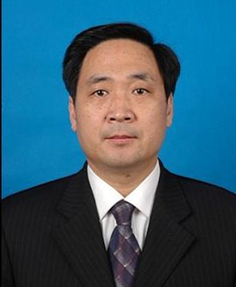
Speaker: Yuqiang Wu, Qufu Normal University, China
Title: Prescribed-Time Control of Uncertain Nonlinear Systems via Nonsmooth Feedback
Abstract: This Talk addresses the nonsingular prescribed-time control of uncertain nonlinear systems over the infinite horizon. For this aim, as the extension of the classic finite time stability theorem, a kind of prescribed-time stability theorem is presented. By using such theorem and suitably introducing a novel prescribed-time adjustment (PTA) function into the virtual (actual) controllers, a nonsingular state feedback design is presented to drive the system states convergent to the destination within any prescribed time and stay thereafter. As a result, the nonsmooth feedback design approach to study prescribed-time control over the infinite horizon of nonlinear systems is successfully proposed. Due to the established direct connection of prescribed-time stability and finite time stability, this approach can ensure the natural extension from finite-time control to prescribed-time control by introducing the appropriate PTA function.
Yuqiang Wu was born in 1962, is a professor of the School of Engineering of Qufu Normal University. He graduated from Southeast University in 1994 with a doctor's degree in engineering. From 1996 to 1999, he visited the University of Central Queensland in Australia and the University of Texas Dallas campus. He is a national model teacher and a distinguished professor of Taishan Scholars in Shandong Province. His research interests mainly include the nonlinear control theory and application, control of nonholonomic systems, and under actuated systems.
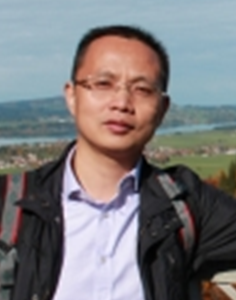 Speaker: Shihua Li, Southeast University, China
Speaker: Shihua Li, Southeast University, China
Title: Nonsmooth Control Methods for Mechatronic Systems and Their Application
Abstract: For mechatronic systems, there are nonlinearities, uncertain parameters, parameter variations, external disturbances which greatly influence the closed loop performances of mechatronic systems. Nonsmooth observer and nonsmooth control methods provide a different solution. These methods can effectively improve the precision as well as the disturbance rejection ability of closed-loop system. Some new research developments and results on this topic will be introduced. Considering the characteristics of motion control, flight control, multi-agent systems, several kinds of nonsmooth control design schemes are presented with experimental verification results.
Shihua Li was born in Pingxiang, Jiangxi Province, China in 1975. He received his bachelor, master, Ph.D. degrees all in Automatic Control from Southeast University, Nanjing, China in 1995, 1998 and 2001, respectively. Since 2001, he has been with School of Automation, Southeast University, where he is currently a chief professor, Vice Dean of the School of Automation. He is the Director General of Jiangsu Association of Automation, a director of Chinese Association of Automation, and the chairman of IEEE IES Nanjing Chapter. His main research interests include modeling and nonlinear control theory (nonsmooth control, sliding mode control, disturbance rejection control, etc) with applications to mechatronic systems, including motion control, automobile engine control, manipulator, robot, power electronic systems, etc. He is one of Clarivate Analytics (originally Thomson Reuters) Highly Cited Researchers (Engineering) all over the world in 2017-2022, one of the Most Cited Chinese Researchers from Elsevier (Control and system engineering), 2015-2021. He is a winner of Nagamori Awards from Nagamori Foundation. He is a Fellow of IEEE & IET.
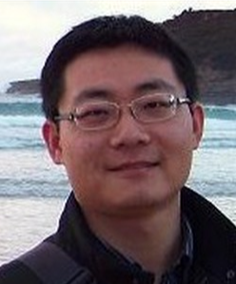 Speaker: Tengfei Liu, Northeastern University, China
Speaker: Tengfei Liu, Northeastern University, China
Title: A Lyapunov-Based Small-Gain Theorem for a Network of Finite-Time Input-to-State Stable Systems
Abstract: This talk presents a Lyapunov formulation of the small-gain theorem for the finite-time input-to-state stability (FTISS) of a large-scale system composed of FTISS subsystems. In addition, an FTISS-Lyapunov function for the entire network system is constructed from the FTISS-Lyapunov functions of the subsystems. With respect to the previously developed nonlinear, Lyapunov-based small-gain theorem restricted to input-to-state stability, a new power-function-based scaling technique is proposed to deal with the challenge that a nonlinearly scaled FTISS-Lyapunov function may not retain a decreasing rate as a power function with a positive power less than one.
Tengfei Liu received the B.E. degree in automation, in 2005, the M.E. degree in control theory and control engineering, in 2007, both from South China University of Technology, Guangzhou, China, and the Ph.D. degree in engineering from RSISE, the Australian National University, Canberra, Australia, in 2011. From 2011 to 2013, he was a Postdoc with faculty fellowship at Polytechnic Institute of New York University. Since 2014, he has been a Faculty Member with State Key Laboratory of Synthetical Automation for Process Industries at Northeastern University. Dr. Tengfei Liu has served as an associate editor for IEEE Transactions on Automatic Control, Systems and Control Letters, and IEEE.CAA Journal on Automatica Sinica. His research interests include stability and control of interconnected nonlinear systems.
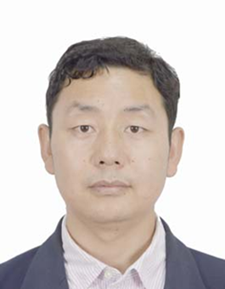 Speaker: Zhi-Liang Zhao, Shaanxi Normal University, China
Speaker: Zhi-Liang Zhao, Shaanxi Normal University, China
Title: Output-Feedback Finite-Time Stabilization for Nonlinear systems
Abstract: The problem of global finite-time stabilization of a broad class of lower-triangular nonlinear systems is investigated in this paper. In the present literature of finite-time control, the system dynamics were assumed to satisfy very restrictive conditions. By adopting compensation and switching control method, we propose novel solutions to solve semi-global and global output-feedback finite-time stabilization problem for a large class of systems under milder conditions. We also develop a novel analytic method to prove the semi-global and global finite-time stability of the closed-loop systems.
Zhi-Liang Zhao received the B.Sc. degree in 2003 from the Shaanxi Normal University, Xi’an, China, the M.Sc. degree in 2007 from the Huazhong University of Science and Technology, Wuhan, China, and the Ph.D. degree in 2012 from the University of Science and Technology, Hefei, China, all in mathematics. He is currently a professor and vice dean with the School of Mathematics and statistics, Shaanxi Normal University, Xi'an, China. He serves as the general secretary of Shaanxi Mathematical Society, a member of Technical Committee on Control Theory, Chinese Association of Automation, and an associate editor of Systems Science and Mathematics. His research interests include nonlinear systems and control, active disturbance rejection control.

















